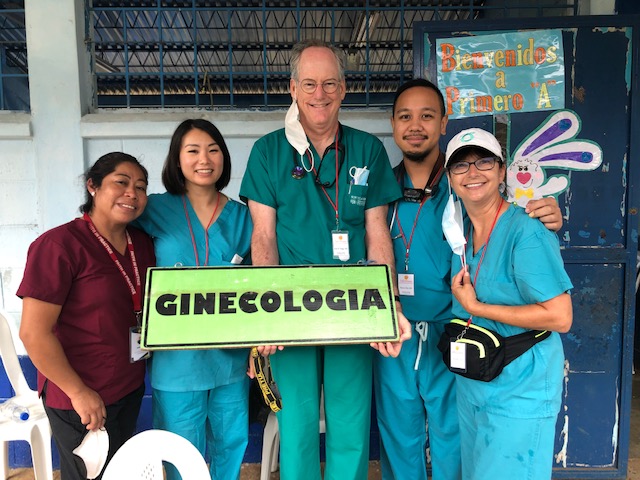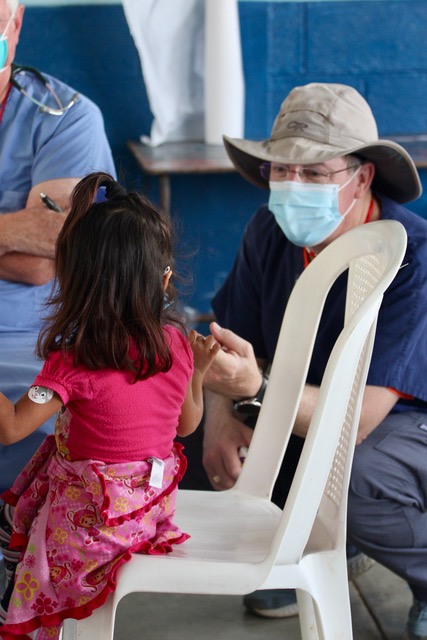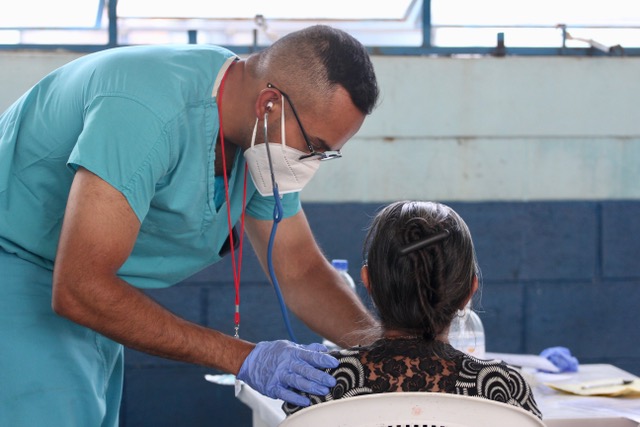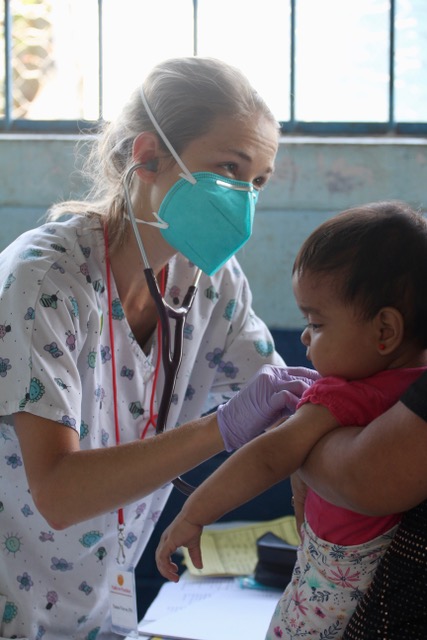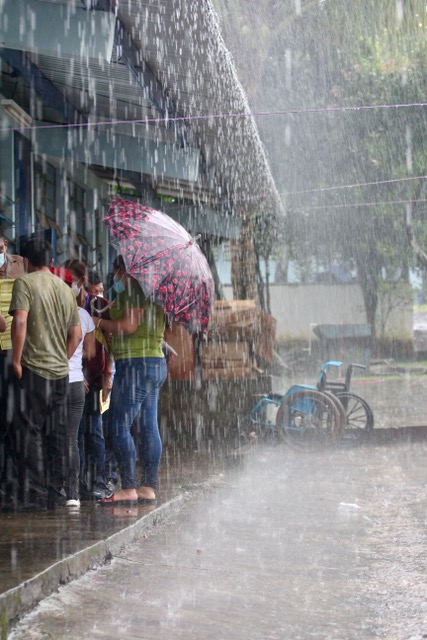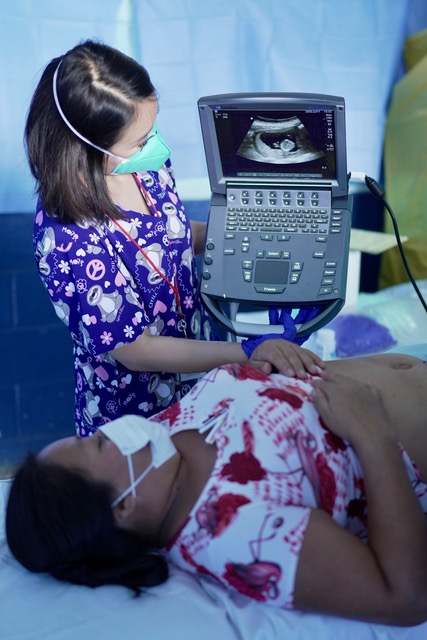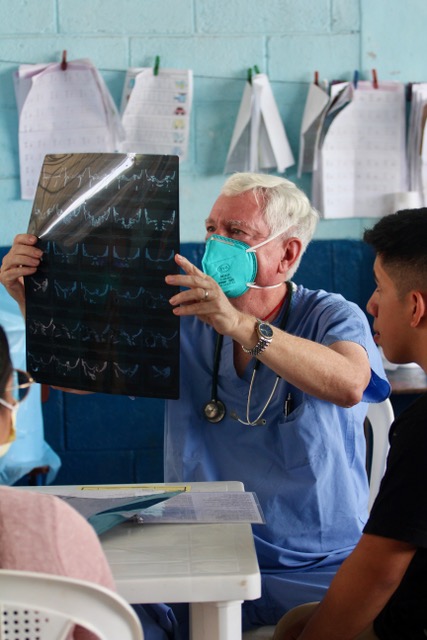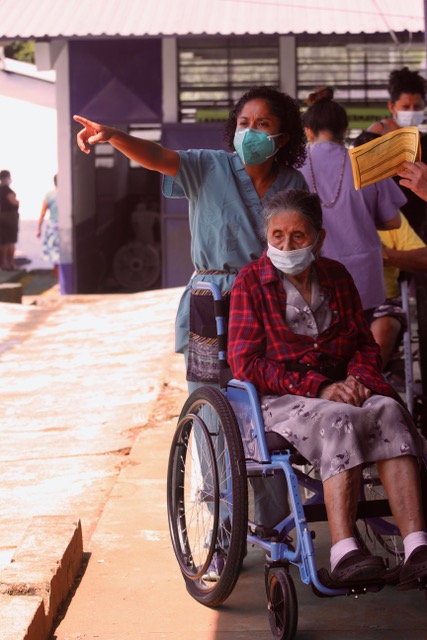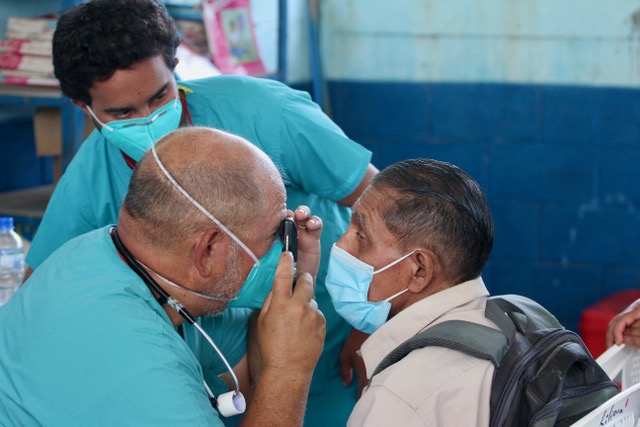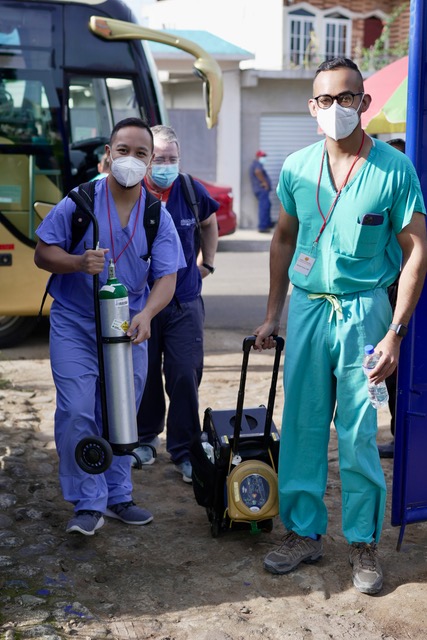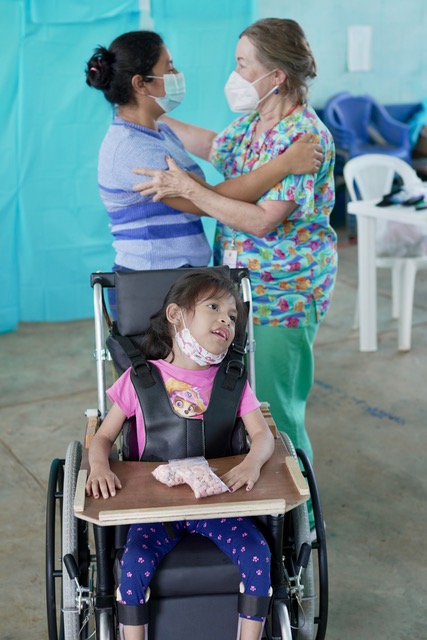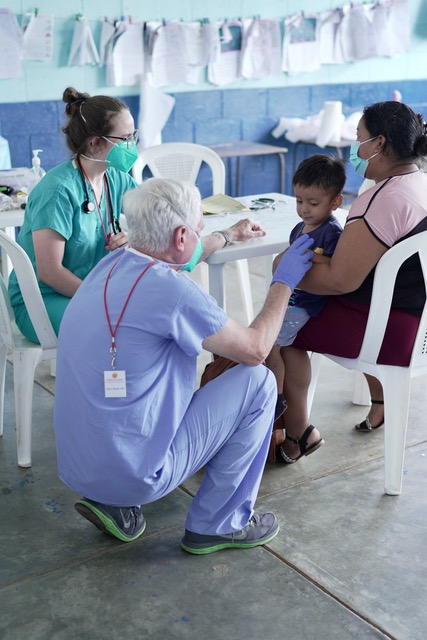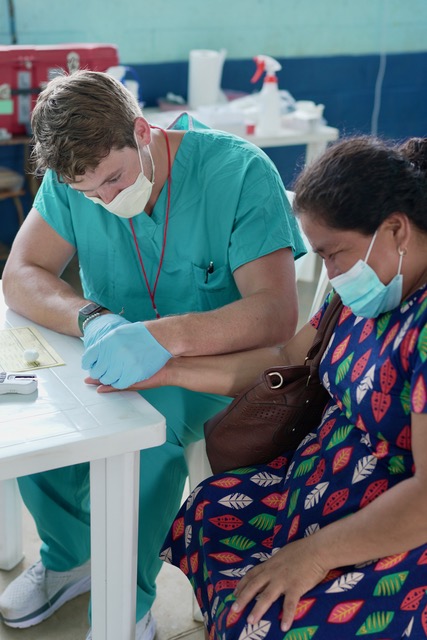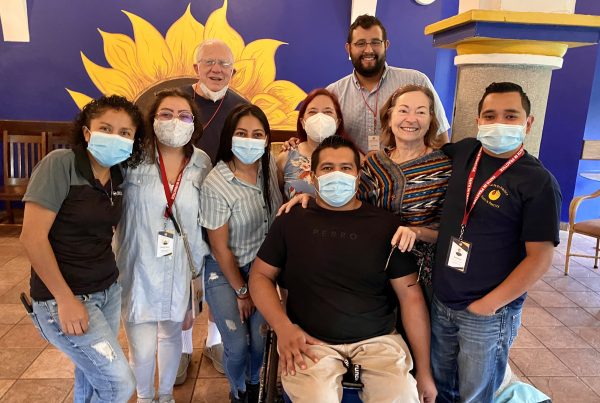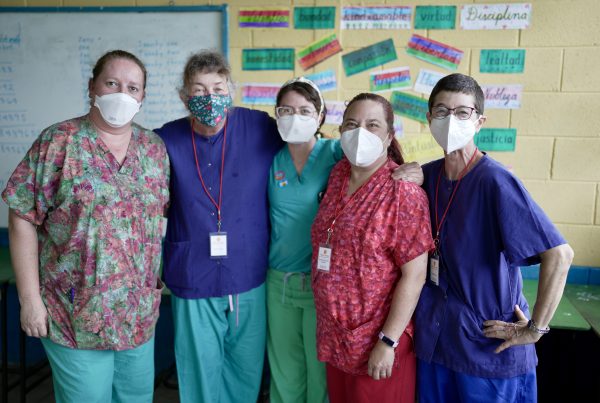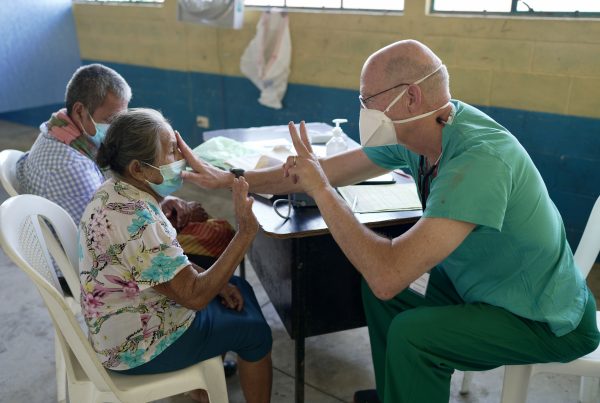It is 7:30pm and we just arrived back at the hotel after a very long day. Our morning devotionals began at 6:30, and then we were on the bus and arrived at the clinic site—already set up yesterday—by 8:00am. Some veteran team members remember seeing huge numbers of patients lined up outside the clinics upon our arrival, but today a smaller group greeted us. This is because COVID protocols have changed the way FIP sets up patient arrival, now inviting them in four timed groups spread out across the day.
Despite the gentler beginning, the clinics were soon buzzing with activity and continued non-stop until past 6pm. Sometimes village teams see large numbers of children, sometimes the dermatology clinic has a long backlog of patients, but today the general medicine clinic—consisting of a real mix of young, middle-aged, and older adults—kept our doctors and pharmacy busy all day. Many doctors serving in other clinics pitched in to help where they could, and they kept working until every single patient had been seen.
Our very first patient in the doors today was an elderly woman who had lost the use of her legs. Her accompanying family member and a few of the local volunteers carried her into the clinic as she sat on a plastic chair. Several more patients were carried in after her, including two young children. Our mobility clinic builders went straight to work assembling chairs of the proper size for each patient, including a specialized chair with a table to play or eat on for the youngest and smallest patient. Quite a range of patients followed, including several amputees, an elderly man with Parkinson’s, a young man with cerebral palsy, and a few cases of leg paralysis in otherwise healthy patients.
But even with an “otherwise healthy” body, using a wheelchair brings its challenges, and one teenaged boy was feeling particularly down about his situation, so Dr. Debra Caspers suggested that he talk to one of our Guatemalan volunteers named Minor. Minor works in the mobility clinic, assembling wheelchairs, and uses a wheelchair himself. He talked to the patient about all the things he has been able to do after he started using a wheelchair, like drive a car, and get married. Minor also showed him some exercises and tips for using the wheelchair, beyond the usual instructions patients get from our physical therapist. We hope that the new chair and the encouragement from Minor will help him in the future!
In the Dermatology Clinic, Dr. Jamael Thomas had one patient that really stood out today: a woman with systemic sclerosis with extracutaneous involvement. Unfortunately, this is a tough autoimmune disease to treat, even back in the United States where patients might have easier access to the medications, treatments, and follow-up procedures. But Jamael was able to treat some of her immediate symptoms, including itchy skin and an infected lesion, that will give her some relief. She also went to our Referrals clinic, which will explore options for future treatment for this woman.
Another new experience for some team members was the torrential downpour that carried on for a few hours this afternoon. Fortunately the local volunteers had prepared well for this (it’s rainy season here, after all), so the patients were covered by tarps and tents, and other chairs were moved under the eaves of the buildings. But the noise of the rain on the metal roofs was deafening. I found it difficult to communicate with fellow volunteers speaking to me in English at close range, so imagine how difficult it was to communicate with patients in Spanish from across a table and behind a mask! But our translators and Spanish-speaking doctors persevered and continued working through the rain, which finally let up later in the afternoon for a dry drive home.
During this final stretch of the day, team leader Dr. Phil Johnson shared some of the history of Faith in Practice with us. It was incredible to hear how much the organization has grown since its inception in the mid 1990s. Major milestones included partnering with the Hilario Galindo hospital here in Retalhuleu (a second hospital connection for FIP), adding the mobility clinic in 2017, and expanding to a size that could aid tens of thousands of patients each year. A particularly few other particularly striking statistics pertain to the VIA Cryo clinic, which dates back to the early days of FIP. This clinic screens and treats women for cervical cancer on the spot, so that they do not have to wait for Pap smear results like we would in the U.S. Tragically, for every one woman that dies from cervical cancer in the U.S., 8 women die in Guatemala, due to both a higher propensity to develop this disease and, of course, the lack of care. In today’s clinic, our incredible VIA Cryo clinic leader, a local staff member named Ana Garcia, found an advanced case of cervical cancer in a woman of only 32 who had never received medical attention before besides when she gave birth to her children. She was referred for follow up care and will be in our prayers. Hopefully, finding this case now instead of later will give her a better chance of survival. The second astonishing statistic we learned during the bus ride is that, through FIP’s VIA Cryo program, an estimated 5% of all women in Guatemala have been screened for cervical cancer. Let’s hope this number continues to grow so that the first statistic may diminish.
We’re off for another early morning tomorrow, with devotionals starting at 5am again. Wish us luck as we start day 2, which includes taking down the clinics at the end of the day so that we can be ready for set up on Wednesday. Check back tomorrow for more updates!
Josie
To support this team and their commitment to our patients visit https://donate.faithinpractice.org/team/373443



